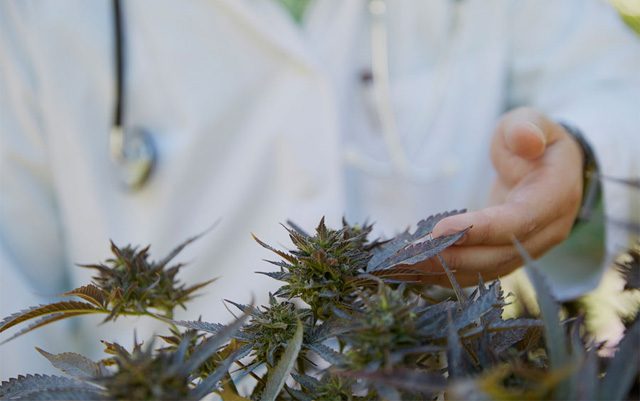Twenty-three states, the District of Columbia, Puerto Rico, and Guam, have determined that Cannabis sativa (a.k.a. marijuana) has medical benefits worth exploring – so why can’t the federal government?
In medical marijuana states, cannabis has proven beneficial for dozens of diseases, mental issues and injuries. This recent reintroduction of cannabis as medicine presents opportunities for medical researchers like Dr. Jacob Vigil to study the plant. The problem is, says Dr. Vigil, that the federal government is in his way.
In an exclusive interview with The Marijuana Times, Dr. Vigil explained a solution to his federally-fueled frustrations.
“I started a medical cannabis research initiative to directly solicit funding from the public and private sectors and circumvent the need for biased review by federal funding agencies such as NIDA,” he said.
It’s called the Medical Cannabis Research Initiative (MCRI) and it’s part of the University of New Mexico Foundation. The crowdfunding would allow Dr. Vigil to conduct research across all areas of social and biomedical sciences at the University of New Mexico.
The studies include basic and clinical investigations, as Dr. Vigil explains, over the safety and efficacy of treating wide spectrum conditions, relative to traditional pharmacological options. For example, analgesia, seizure disorders, sleeping disorders, asthma, mood disorders, and PTSD.
Dr. Vigil and his colleague, Sarah Stith, recently published a paper in the American Association for the Advancement of Science’s (AAAS) Science journal to draw attention to their frustrations with federal barriers preventing them from studying cannabis.
Federal Barriers to Medical Research
In their academic paper, the professors outline the extreme lengths and arduous paperwork researchers must overcome to get permission from the multiple government agencies to study the plant. Some of which, are fundamentally opposed to acceptance of any medical use for cannabis while it remains a Schedule I drug under the Controlled Substances Act.
“This has created a truly unique and an unnecessary paradox in modern medicine, in which physicians are authorizing treatments to patients, and patients are regularly using medication without a scientific basis of knowledge on patient outcomes, forced rather to rely only on scientifically invalid or anecdotal information,” Vigil and Stith said.
The NIDA Monopoly
The arduous application process isn’t even the worst of it. These academics are really concerned about the National Institute on Drug Abuse’s (NIDA) monopoly over all the cannabis used for research purposes. It’s been debated whether or not NIDA grown cannabis is viable for studies because of its low potency.
Topping out at 12.4 percent, the highest THC level available to researchers falls way short of the 18 to 35 percent THC available in Colorado. “The tetrahydrocannabinoid (THC) potency levels in the cannabis available through NIDA are much lower than those in Cannabis products used by medical patients,” they wrote. The only two clinical studies funded by NIH (the National Institutes of Health) in 2015 used 3.5 and 7 percent THC. It’s not even close to what real-world patients are using today.
End the Suffering
Studying pot could help patients, and their purses. “As long as clinical research on cannabis is controlled by regulators expressly opposed to any increase in its consumption, health care cost reductions may be missed, and intoxication and long-term effects will remain unknown,” says Vigil and Stith.
Most importantly, the researchers point to the suffering that could be avoided by allowing them to do their job. “Many ill patients may suffer unnecessarily because no one knows the true risks and benefits of consuming Cannabis sativa.” Cannabis has given relief to patients suffering conditions such as cancer, epilepsy, chronic pain, and PTSD.
Some physicians believe the substitutability of it for alcohol might also reduce the number of deaths and costs associated with alcohol abuse and drunk driving.
Dr. Vigil says he will be conducting a national funding campaign for his medical cannabis research soon. Meanwhile, you can visit the UNM Foundation website to donate and search to see if your donation is eligible to be matched by your employer.







Good 5 +